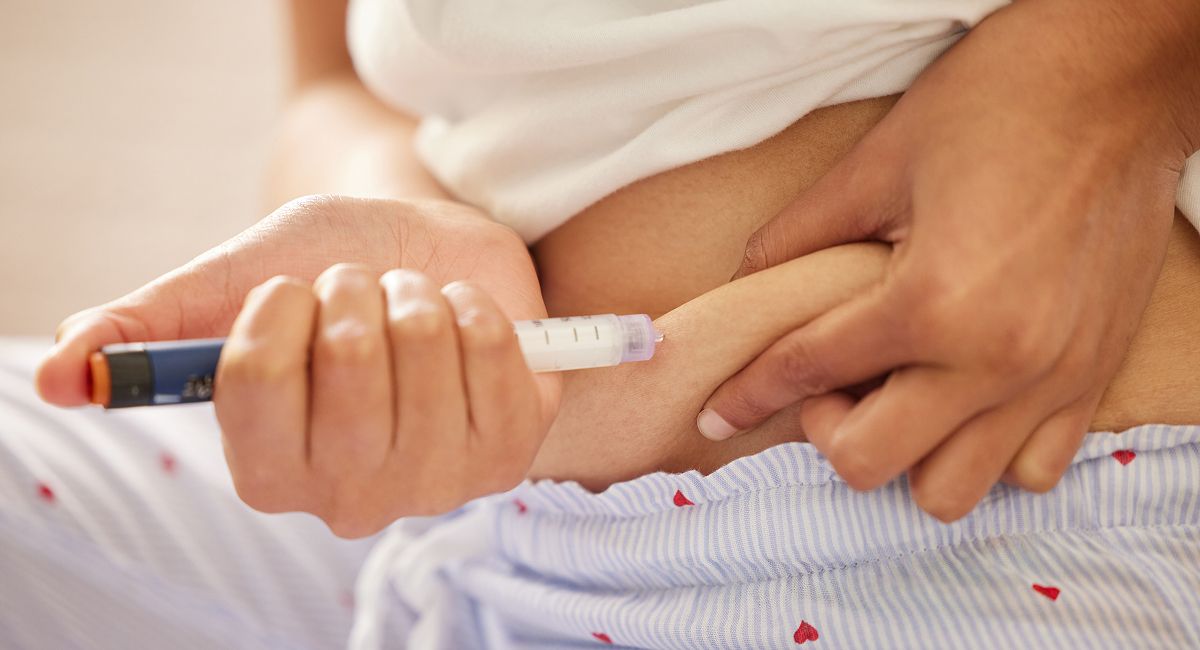
- Receive a free gift with orders over €30
- Customers rate us an average of 4.6 / 5 (882 reviews)

Menstruation and diabetes, what’s the connection? While menstruation is a natural process that many women experience, having diabetes can add an extra layer of complexity to this cycle. In this blog, we will explore how diabetes can affect the menstrual cycle, possible complications and strategies for managing diabetes during this period.
Type 1 diabetes is a condition in which the body is no longer able to produce insulin. This disease is caused by an autoimmune reaction, in which the body’s immune system begins to produce antibodies that attack the beta cells in the pancreas. As a result, these cells can no longer produce insulin, leading to a challenge: the body can no longer process sugars effectively.
To control this situation, people with type 1 diabetes rely on insulin treatments, such as insulin pumps or insulin pens.
The question on the minds of many is why our own immune system turns against our own beta cells and starts making antibodies. To date, this remains an unanswered question in the medical community.
A deep understanding of the complex relationship between the immune system and insulin production is essential for improving the quality of life of people with type 1 diabetes.
The connection between menstruation and diabetes is complicated and has many aspects. Here are some important things to remember:
In summary, the relationship between menstruation and diabetes is complex and can involve several aspects, including blood sugar fluctuations, insulin sensitivity, menstrual symptoms and complications. It is important for women with diabetes to be aware of these potential influences and to work with their health care providers to effectively manage their diabetes during the menstrual cycle.
Since the 1920s, scientists have been looking at how type 1 diabetes and the menstrual cycle are related. While we do not yet understand everything about it, we have found some important information.
An interesting article, called“Menstrual Cycle, Glucose Control, and Insulin Sensitivity in Type 1 Diabetes,” is about women with type 1 diabetes. It turns out that some women become less sensitive to insulin during their periods, which can cause their blood sugar levels to rise.
Women with type 1 diabetes often face special challenges during their periods. They may have irregular periods, bleed less heavily or not at all. They also enter menopause earlier and start menstruating later than women without diabetes. Having diabetes can increase the risk of miscarriages and reduce the chances of a successful pregnancy. In addition, they are also more likely to have problems with their sex organs.
Interestingly, in some women with type 1 diabetes, menstruation seems to affect their blood sugar levels. Between ovulation and the start of menstruation, blood sugars may be higher and insulin may not work as well, causing blood sugar to rise.